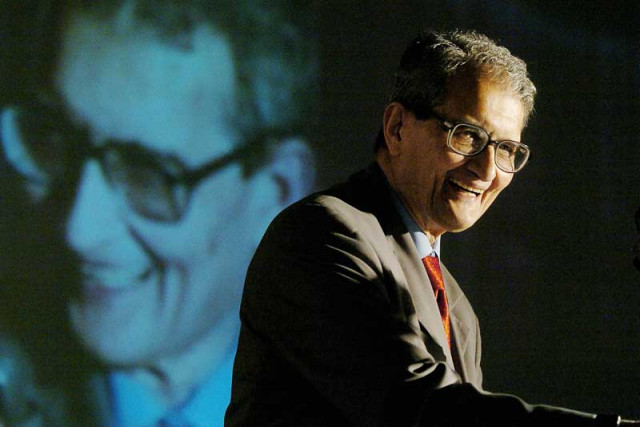Indian Nobel laureate criticises Modi's IOK move, says Kashmir solution lies in democracy
Dr Amartya Sen says Modi's claim that IOK clampdown was a preventive measure is a "classic colonial excuse"

Dr Amartya Sen. PHOTO: AFP/FILE
In an interview with Indian media outlet, NDTV, Dr Sen strongly criticised the treatment of Kashmiri citizens and political leaders by Indian forces.
"I don’t think you would ever have fairness and justice without hearing the voices of the leaders of the people, and if you keep thousands of leaders under restraint and many of them in jail, including big leaders who have led the country and formed governments in the past ... you are stifling the channel of democracy that makes democracy a success," he said.
"I don't think ultimately you will have any resolution in Kashmir without democracy."
Dr Sen said New Delhi’s move to scrap Article 370 has tarnished India's reputation as a bastion of democracy.
India arrests prominent activist after Kashmir exposé
"As an Indian, I am not proud of the fact that India, after having done so much to achieve a democratic norm in the world - where India was the first non-Western country to go for democracy - that we lose that reputation on the grounds of action that have been taken."
To a question on the support being voiced for Modi’s decision to abolish Article 370 and 35A, the economist said, "You are asking the opinions of Indians, not Kashmiris."
Referring to the abolishment of Article 35A – which would allow people to buy land in IOK – Dr Sen said, “This is something for the Kashmiris to determine. Kashmiris have a legitimate point of view because this is their land.”
He said the global opinion on New Delhi's IOK decision has been negative and critical, while also dismissing Modi's excuse that the clampdown in the occupied territory was part of "preventive measures".
"That's the classic colonial excuse. That's how the British ran the country for 200 years," Dr Sen said. "The last thing that I expected when we got our independence ... is that we would go back to our colonial heritage of preventive detentions."



















COMMENTS
Comments are moderated and generally will be posted if they are on-topic and not abusive.
For more information, please see our Comments FAQ